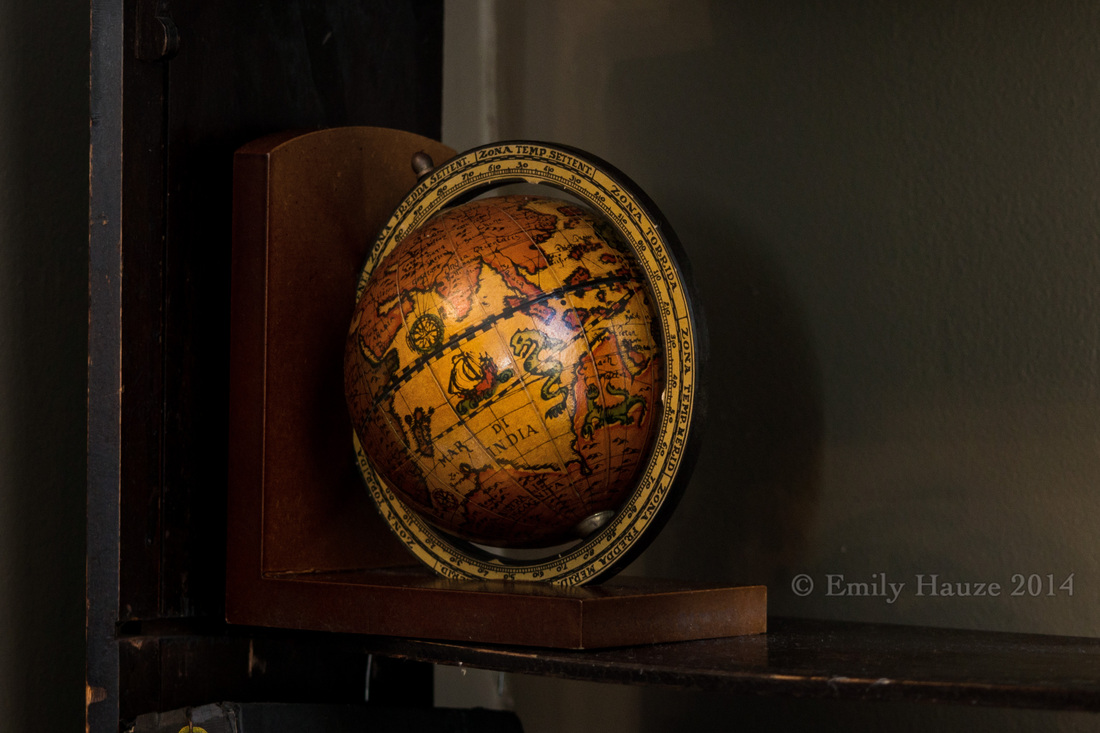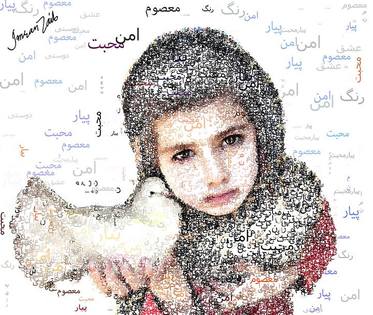|
The poetry of these words from The Tempest will ring familiar to most readers, even those not well versed in Shakespeare: "O, wonder! How many goodly creatures are there here! How beauteous mankind is! O brave new world, That has such people in't!" It is the amazement of Miranda, daughter of the sorceror Prospero, upon seeing a world beyond the narrow island where she has spent all her life thus far. But her father's quiet response is also important: "'Tis new to thee." I have always identified with the character of Miranda, who, like me, grew up in an isolated, well-protected, and beautiful place--the tiny college town where I grew up is considered by many to be enchanted, not unlike Miranda's distant island. It was in many ways a charmed upbringing, especially in my earlier childhood. But as I became a teenager, I became more disheartened with the narrowness of my world and the sameness of my surroundings. When I left home for university (we call it college, but it's what the rest of the world would call university), I went relatively far -- 800 miles -- and began discovering a "brave new world." I wrote my college entrance essay on Miranda, even. I was reminded of this expression of wonder and newness when I came upon the globe in the photograph--a globe which has a magical quality to it, but more importantly is tilted to the side of the world that I am only now discovering in my current phase of life. And there is a beautiful irony in it all, too. To me, this world is "new" -- but Prospero reminds me gently, "'Tis new to thee." Meaning, it is not new at all -- in fact, this world is ancient, more ancient than anything I have known thus far, with a deeper history than anything I have encountered in my own young nation, or even in my travels to Europe. The newness comes from my own eyes. But I have been learning about South Asia now for a few years, non-stop, with voracious curiosity. I have discovered many dark and dismal sides of my new world as well. But I am drawn on in endless fascination. And it still feels new, and it still glows for me.
0 Comments
I do not wish to glorify Hamas, and I also don't want to condemn Israel as a nation of demons. The powers at play are not black and white. It's not good guys versus bad guys. I can't pretend to have a solid grasp on the intricate network of alliances, terror groups, supply chains, hatreds and allegiances of all sorts that govern our world and that have their hub in the super-charged region of the Middle East. Conspiracy theories abound, and some of them may be justified -- but there is little sense in tackling those issues when the surface-level events are as problematic as they are. The conflict in Gaza has brought out the worst in human nature as the Israeli government has continued to take innocent lives with no visible remorse.
As an American, I hoped to see my leaders, whom I support, take a strong role in promoting peace and recognizing human suffering. Despite the US's historical ties with Israel, I had hopes until quite recently that the US government would be capable of opposing its ally's unconscionable actions. Remarks by Pres. Obama and Secretary Kerry today, however, have dashed those hopes. My social media feeds have witnessed a global chorus of pained outrage that the US could point a finger at Hamas over the capture of one Israeli soldier when the death toll in Gaza surpasses 1400, mostly civilians, and nearly half a million citizens have been displaced. (Those figures are the current BBC estimates as of today.) Further and deeper outrage that the US could re-supply Israel's munitions so that they could continue in their destruction. My own reaction is the same as that of my friends around the world. The US government's logic in supporting pure destruction, and its failure to recognize the tragedy of thousands of Palestinians in need, is a deep affront to my own conscience as well as that of the world. To be honest, I am stunned that my own government could be this outwardly heartless. The President is generally careful to include a line of sympathy for Palestinian civilians killed in his various statements, but he pads it with pro-Israel rhetoric and reduces the lives of Palestinians to a weak after-thought. The resulting effect is worse than insulting -- America is not only portrayed as greedy and self-interested in supporting its ally, but as callous and completely unmoved by human tragedy. How can I blame friends around the world who harbor anti-American sentiments after seeing this behavior? A large part of my purpose in writing this blog entry is to show my friends around the world that America is broader and deeper than its government's policies, and that many of us stand in support of our fellow human beings in Palestine. Many of my friends around the world are under the impression that all Americans are pro-Israel and anti-Palestine. Given our government's policies, I can certainly understand why they would think so. But the American populace is vast and varied in its political outlook. There is clearly a very firm core of Zionism here that is supporting Israel in both material and psychological means. But there are many Americans, including Jewish Americans, who see the other side of this conflict. I am not alone in my views. The most frightening aspect of the Gaza tragedy as it affects the world at large is its ability to provoke hatred and narrow minds. Outrage is essential -- but all too often that outrage turns to hatred. Outrage must never be allowed to prevail over humanitarian understanding. So often I see righteous indignation turn sour and end in the demonization of the opponent. Anti-semitism is on the rise around the world. Pain over atrocities turns quickly into hatred for hatred's sake. To all who respond to pain by feeling hatred -- of course I understand what you are feeling. But please remember that it was hatred that caused your pain, too. It is not the solution. Hatred mobilizes armies, it arms militants, it fuels terrorists and suicide bombers. We have to look to a different emotional fuel now. Love and compassion have to prevail to weaken self-interest and greed. Compassion is the only way to open the blocked arteries of global conscience. Please join me in this effort, wherever you are. |
Image at top left is a digital
portrait by Pakistani artist Imran Zaib, based on one of my own photographic self-portraits in Thari dress. AuthorCurious mind. Archives
September 2020
Categories |
emily s. hauze


 RSS Feed
RSS Feed
